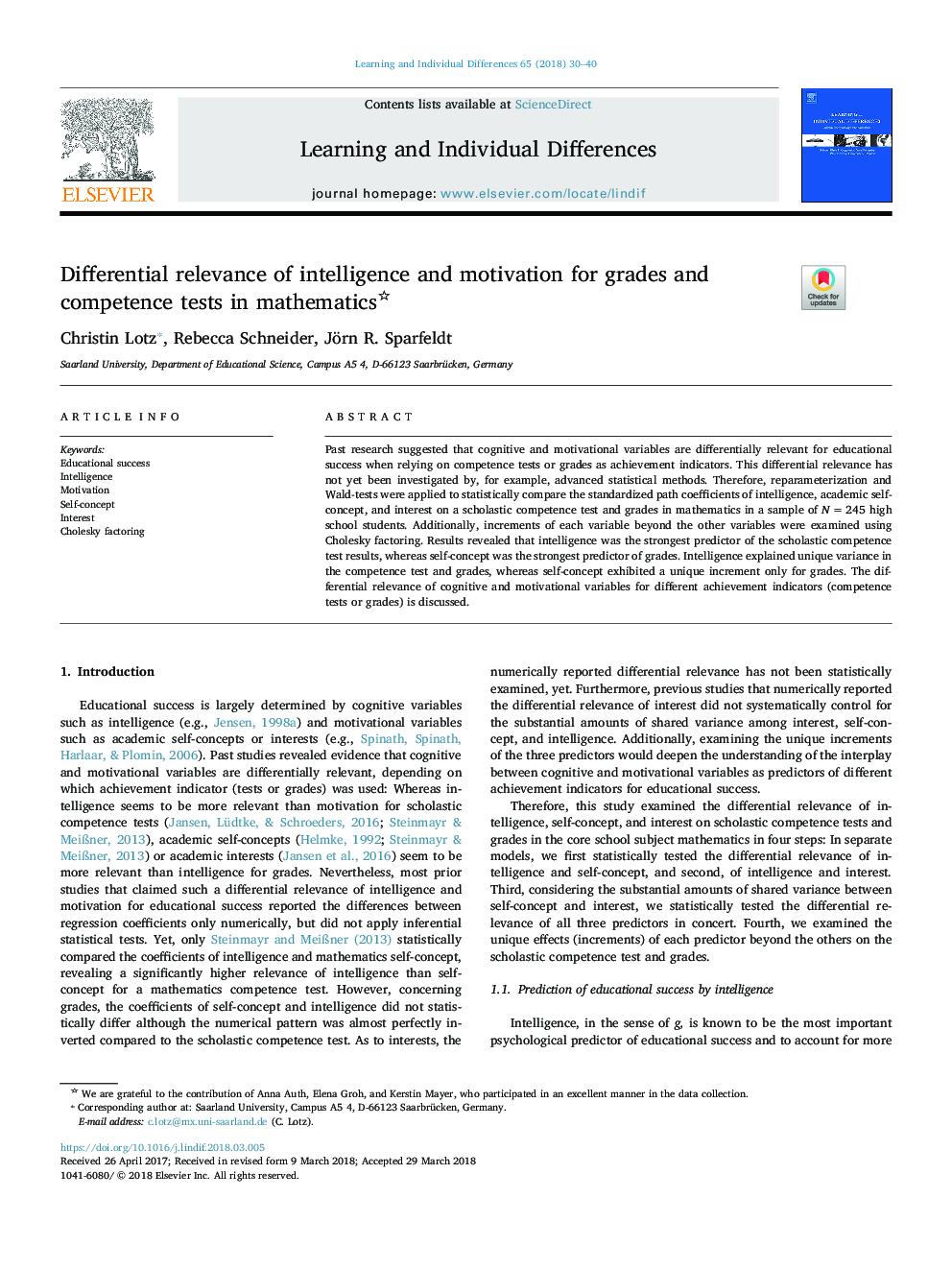| Article ID | Journal | Published Year | Pages | File Type |
|---|---|---|---|---|
| 6844275 | Learning and Individual Differences | 2018 | 11 Pages |
Abstract
Past research suggested that cognitive and motivational variables are differentially relevant for educational success when relying on competence tests or grades as achievement indicators. This differential relevance has not yet been investigated by, for example, advanced statistical methods. Therefore, reparameterization and Wald-tests were applied to statistically compare the standardized path coefficients of intelligence, academic self-concept, and interest on a scholastic competence test and grades in mathematics in a sample of Nâ¯=â¯245 high school students. Additionally, increments of each variable beyond the other variables were examined using Cholesky factoring. Results revealed that intelligence was the strongest predictor of the scholastic competence test results, whereas self-concept was the strongest predictor of grades. Intelligence explained unique variance in the competence test and grades, whereas self-concept exhibited a unique increment only for grades. The differential relevance of cognitive and motivational variables for different achievement indicators (competence tests or grades) is discussed.
Related Topics
Social Sciences and Humanities
Psychology
Developmental and Educational Psychology
Authors
Christin Lotz, Rebecca Schneider, Jörn R. Sparfeldt,
